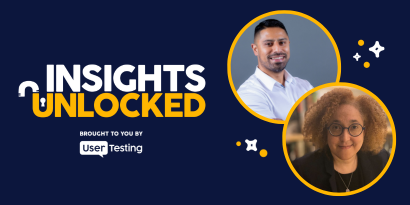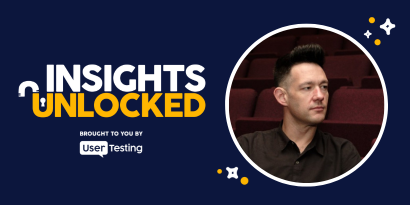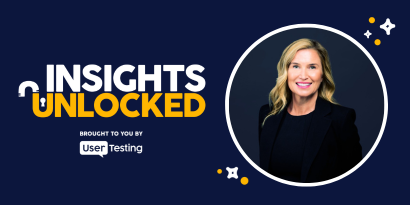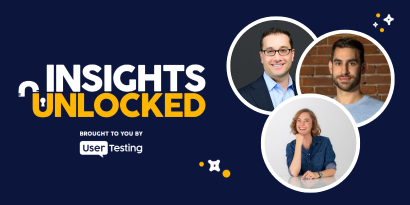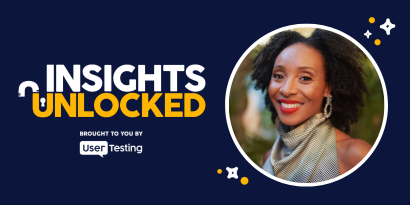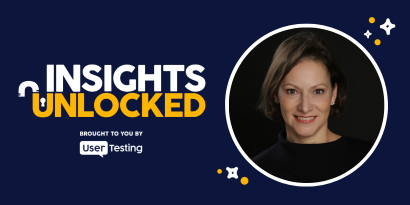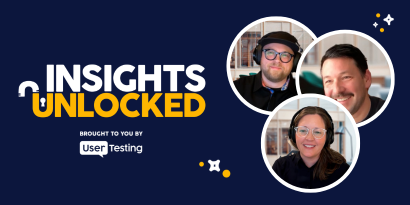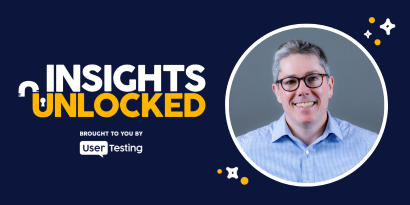
Episode 190 | September 29, 2025
Burn the playbook with Joe Pulizzi on content entrepreneurship
Joe Pulizzi shares how creators and marketers can build freedom and wealth through content entrepreneurship and audience-first strategies.
Build your Plan B: How content entrepreneurship can unlock freedom and meaning
How secure is your career, really? If you're relying solely on a corporate job for stability, Joe Pulizzi has a wake-up call and a roadmap.
In a recent episode of the Insights Unlocked podcast, Joe Pulizzi, bestselling author and widely recognized as the godfather of content marketing, sat down with host Nathan Isaacs to talk about content entrepreneurship. It's the art (and increasingly, the necessity) of building an owned audience and turning it into a meaningful, sustainable business.
“If you build an audience first, you can build any business model you want,” Joe said.
Joe’s latest book, Burn the Playbook, challenges professionals to rethink outdated ideas of success, security, and work. It’s not just a manifesto, it’s a survival guide for anyone who wants more time, freedom, and purpose in their life.
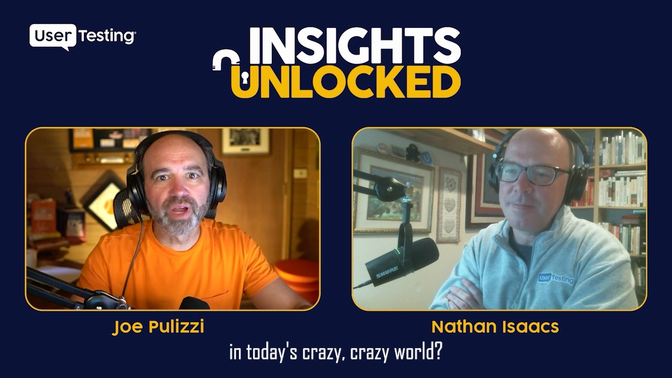
From content marketer to content entrepreneur
Joe was one of the first to define content marketing, launching what would become the Content Marketing Institute in 2007 (and Content Marketing World in 2010). But after successfully exiting the Content Marketing Institute in 2016, he found himself asking: Now what? The answer came through helping others, particularly creators and marketers, find their own paths to freedom through ownership.
“I believe in my heart that I've been put on this earth to help human beings find meaning, find their own freedom, and find wealth, whatever that means to them,” Joe said.
This shift in perspective led him to found The Tilt, a newsletter and community for creators building businesses around their content. Then came CEX, or the Content Entrepreneur Expo, which recently celebrated its fourth year.
And this year, he tackled writing the Burn the Playbook, a book he says he wrote for his kids, who read drafts and provided feedback along the way. “I selfishly wrote this for my kids. I tell them things all the time. My kids, by the way, are 22 and 24. So they’re not little kids anymore,” he said.
“They gave me some great feedback, which I implemented into the book,” he said. “But it's basically just how do you build a life of freedom and meaning in today's crazy, crazy world?”
In addition to his kids, he said, he wrote for high school and college students just starting out in their careers, “if a career is a thing anymore.”
“And then there are people like my friends that are 40 and 50 years old that are getting laid off and they don't have any clue what to do,” he said. “Or if you're in a job with zero satisfaction, what do you do then? Life is short. ... You're concerned about providing for your family, but at the same time, you don't want to go to work 9 to 5 every day and do something that's meaningless.So that's why burn the playbook was created.”
ON-DEMAND WEBINAR
Turning competitor feedback into your strategic edge
The “tilt” that sets you apart
Success in the creator economy doesn’t start with passion. It starts with your “tilt,” your unique point of view or advantage in the market. Joe explained it this way, “A tilt is your unique angle on something. What makes you different that creates real value and makes you irreplaceable?”
Finding your tilt isn’t about chasing trends or algorithms. It’s about identifying where your knowledge, interests, and experience intersect with real audience needs. For some, that might mean storytelling for indie game developers, being an expert on the latest AI tools, or using your law experience to create legal templates for sale.
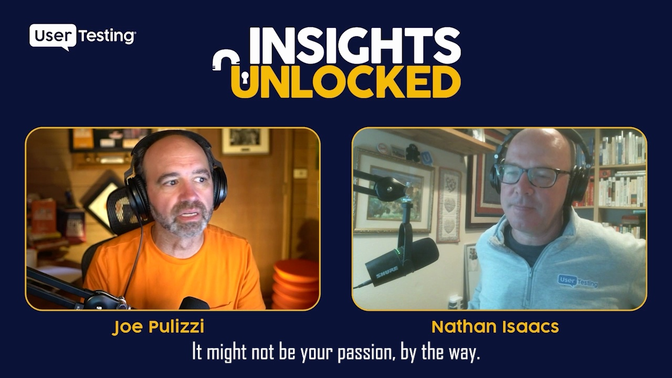
Why now is the time to start your side hustle
Waiting for the “perfect time” to launch your side hustle? That time is now. Whether you’re worried about AI, corporate layoffs, or just feeling unfulfilled, Joe believes your Plan B should be your Plan A.
“Even if you have a job, you've got to figure out another path out of here,” he said. “Because where we used to have a career in marketing, now we need to use that experience to take us to another place.”
He points to major layoffs, economic shifts, and the accelerating rise of generative AI as signals that job security is no longer guaranteed. Friends of his in marketing are being laid off and left wondering, what next? For many professionals, building an audience-first business model (one based on real human connections and consistent value) isn’t a side project. It’s an insurance policy.
Passion isn’t required, but purpose is
Many people get stuck thinking they have to “follow their passion” to launch a content-driven business. Joe says a tilt is more than that. Passion is nice, but it’s not always monetizable. Instead, he recommends starting with what you know better than most and where you can be consistently helpful.
“You don’t have to be passionate about it. You just have to be good at it, and have something unique to say,” he said.
To find your starting point, he suggests writing down the topics where you have deep knowledge or strong opinions. Then look for the overlap between those and underserved audiences. From there, start testing content formats like newsletters, podcasts, or video series.
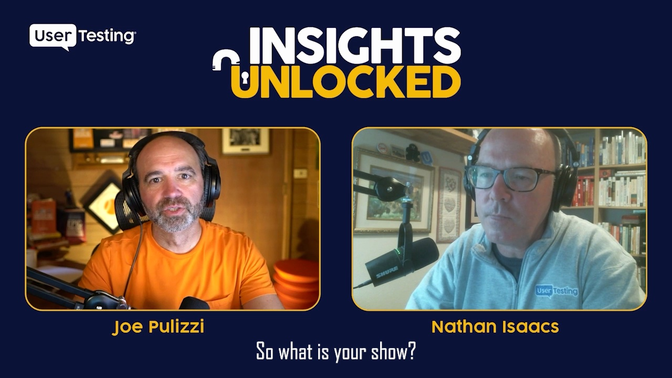
The long game: building generational wealth through content
What does content entrepreneurship look like over time? Joe’s own journey offers a powerful example.
It took three years for his original business, the Content Marketing Institute, to gain real traction. But that investment paid off with an eventual exit that created generational wealth. His new platform, The Tilt, and its associated event, CEX, are built on the same principles: strategic audience growth and multiple monetization paths.
And he’s not alone. He cites Justin Welsh and other creators who’ve turned side hustles into million-dollar businesses through consistent value creation and smart platform choices.
Don’t rent your audience, own it
One of Joe’s biggest pieces of advice: don’t build your business on rented land. That means avoiding over-dependence on platforms like TikTok, Instagram, or YouTube, where algorithm changes can wipe out your reach overnight.
“If you're doing great on TikTok or YouTube, that's great. But you can't control those algorithms. Let's figure out how to build something sustainable,” he said.
The solution? Build an email list. Focus on a format you own and control. That might mean:
- A biweekly newsletter for startup founders
- A podcast about creative workflows for UX teams
- A paid membership community for product marketers
Start small, build trust, and over time, create a flywheel of audience growth and monetization.
Create before you consume
Joe’s daily habit, which he applied to writing Burn the Playbook, is deceptively simple: Create before you consume.
“Most people wake up and start consuming someone else’s content. You’re helping someone else’s business model,” he said. “Instead, wake up and create something first, even if it’s just one sentence in a journal.”
This creative discipline fuels long-term output. It’s how Joe wrote the book using a “60/60/1” approach: 60 minutes a day for 60 days straight, one goal. The key isn’t perfection, it’s consistency that leads to momentum.
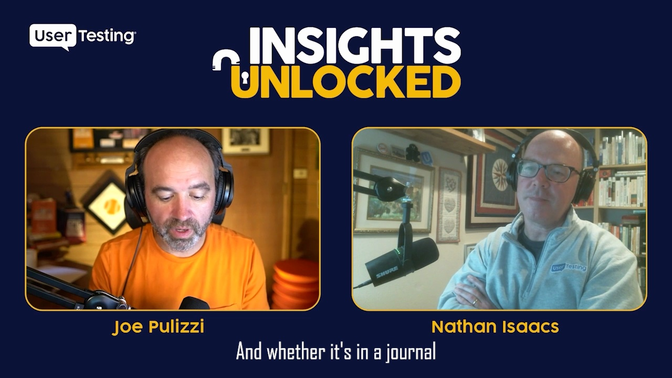
The creator’s process is a marketer’s superpower
One of the episode’s most practical takeaways is this: If you're a marketer, you already have everything you need to become a content entrepreneur. You've talked with customers and identified markets, built brand campaigns, driven customer engagement, and optimized messaging—all critical for launching and sustaining a content-first business.
But Joe stresses the difference lies in commitment.
“Stop thinking in terms of campaigns. Campaigns end. Create a show,” he said. Whether that’s a newsletter, podcast, or video series, the goal is consistency, not virality.
And if you're still working full-time? These tips apply there, too. Spend 30 minutes at the start of the day to test an idea, research a new market, revisit and repurpose old (but still great) research. After one month or one quarter, you will have something you can bring to your boss or their boss and help you get that next raise or promotion. Over time, those small steps can unlock your freedom.
guide
Unlocking audience insights: driving smarter decisions across product, marketing, and UX
What content entrepreneurs can teach enterprise marketers
Joe’s advice isn’t just for solo creators or side hustlers. It’s relevant for content marketers, brand leaders, and CMOs inside large organizations.
In many ways, content entrepreneurship is a masterclass in audience-first strategy, something enterprise brands often struggle to sustain. Instead of defaulting to fragmented campaigns, CMOs can empower their teams to think like showrunners. That means prioritizing long-term content plays that build loyalty, trust, and measurable business impact.
Here’s how enterprise marketers can put Joe’s advice into action:
- Build your company’s “show.” Don’t just publish content. Build a consistent, owned media platform (a newsletter, podcast, or YouTube series) that customers genuinely look forward to. Make it a show, not a campaign.
- Find your brand’s tilt. Even in competitive industries, your brand has a unique POV. Maybe it’s how you approach innovation, your take on customer empathy, or your industry expertise. Define that tilt and build content around it.
- Own your audience. Relying solely on social media or SEO for reach and traffic is risky (listen to our interview with Rand Fishkin). Shift focus to owned channels like email, your website, and in-product content to reduce dependency on platforms you can’t control.
- Empower internal creators. Your subject matter experts and internal storytellers can be your greatest asset. Give them a platform. Let their voice and authenticity shine to build trust with niche customer segments.
- Create before you analyze. Speed matters. Give your team the permission to test ideas, ship content quickly, and gather real audience feedback—rather than waiting for perfect data.
When enterprise content teams embrace the mindset of content entrepreneurs, they stop chasing trends and start leading conversations. That’s how they build long-term brand equity in a noisy market.
What if your content disappeared?
Joe left listeners and organizations with a challenging question: “If your content disappeared tomorrow, would anyone miss it?”
It’s a gut check for anyone creating content that blends into the noise. To stand out, you have to take risks, lean into your crazy, share bold ideas, and speak directly to a specific audience. Forget trying to appeal to everyone. Instead, create content that would leave a hole if it were gone.
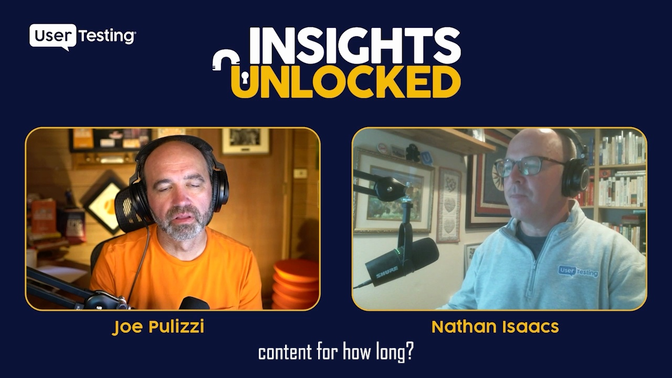
That might mean creating niche content for a small group of ideal customers. Or launching a side project that turns into your full-time business. Either way, the future belongs to those willing to show up, say something meaningful, and own their platform.
As Joe put it best, “You'll make a lot of wrong choices, and they'll add up into the right one sooner or later.”
Episode links
- JoePulizzi.com
- Burn the Playbook
- The Tilt newsletter
- Content Entrepreneur Expo (CEX)
- This Old Marketing podcast
- Fix the gaps — in this on-demand webinar, learn how to optimize the customer journey for better ROAS and higher ROI
- Unlocking audience insights: driving smarter decisions across product, marketing, and UX — This guide shares tips on collecting, analyzing, and applying audience feedback to inform strategy.
- Mastering market research on a budget — In this podcast episode, Mike McDowell interviews Mireya Arteaga about low‑cost research tips for small businesses and side hustles, plus how to turn research into actionable insights
- What is customer journey mapping? — This blog post explains how mapping the customer journey can help you identify touchpoints, improve marketing strategies, and grow loyal audiences.
guide
